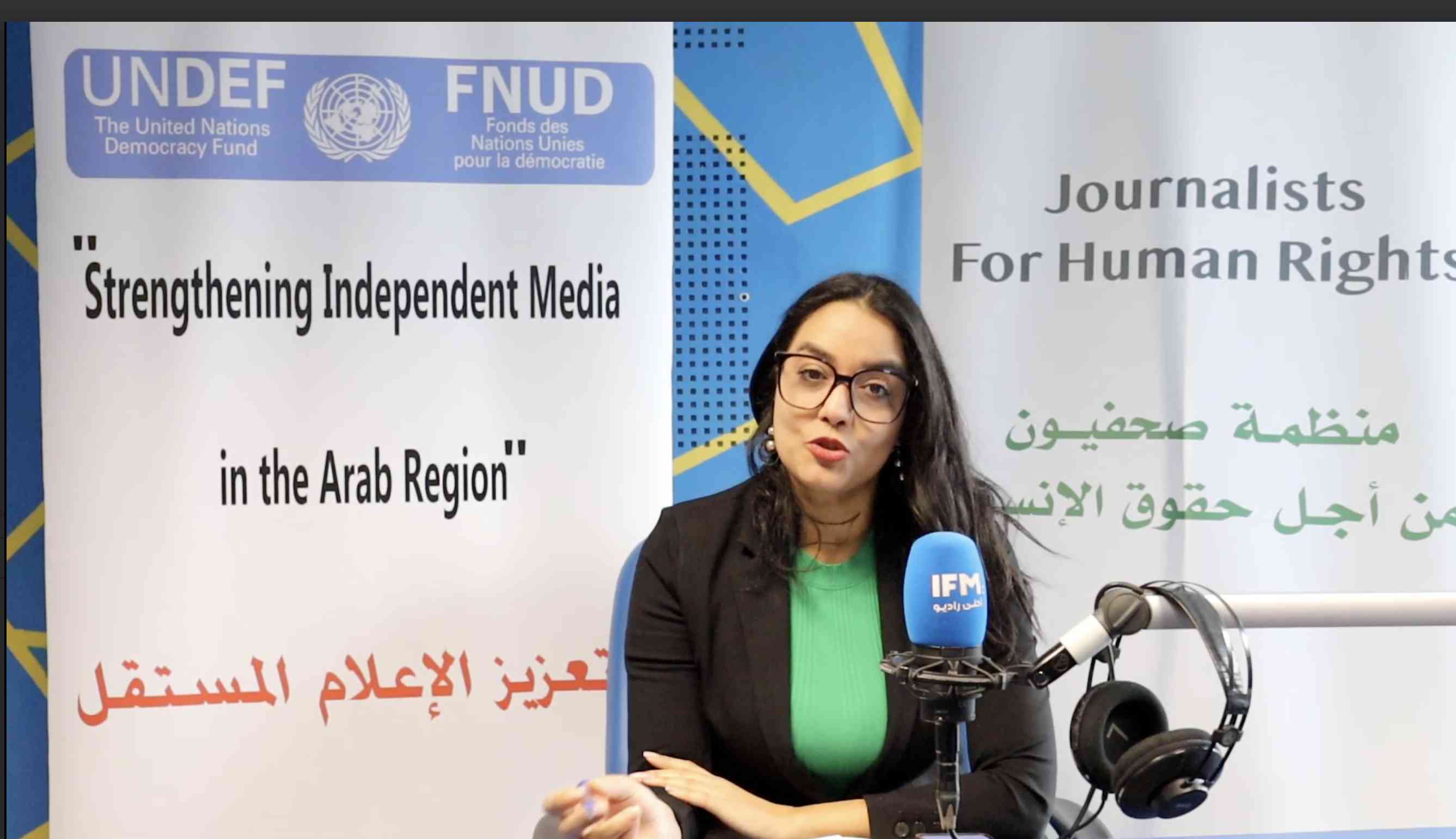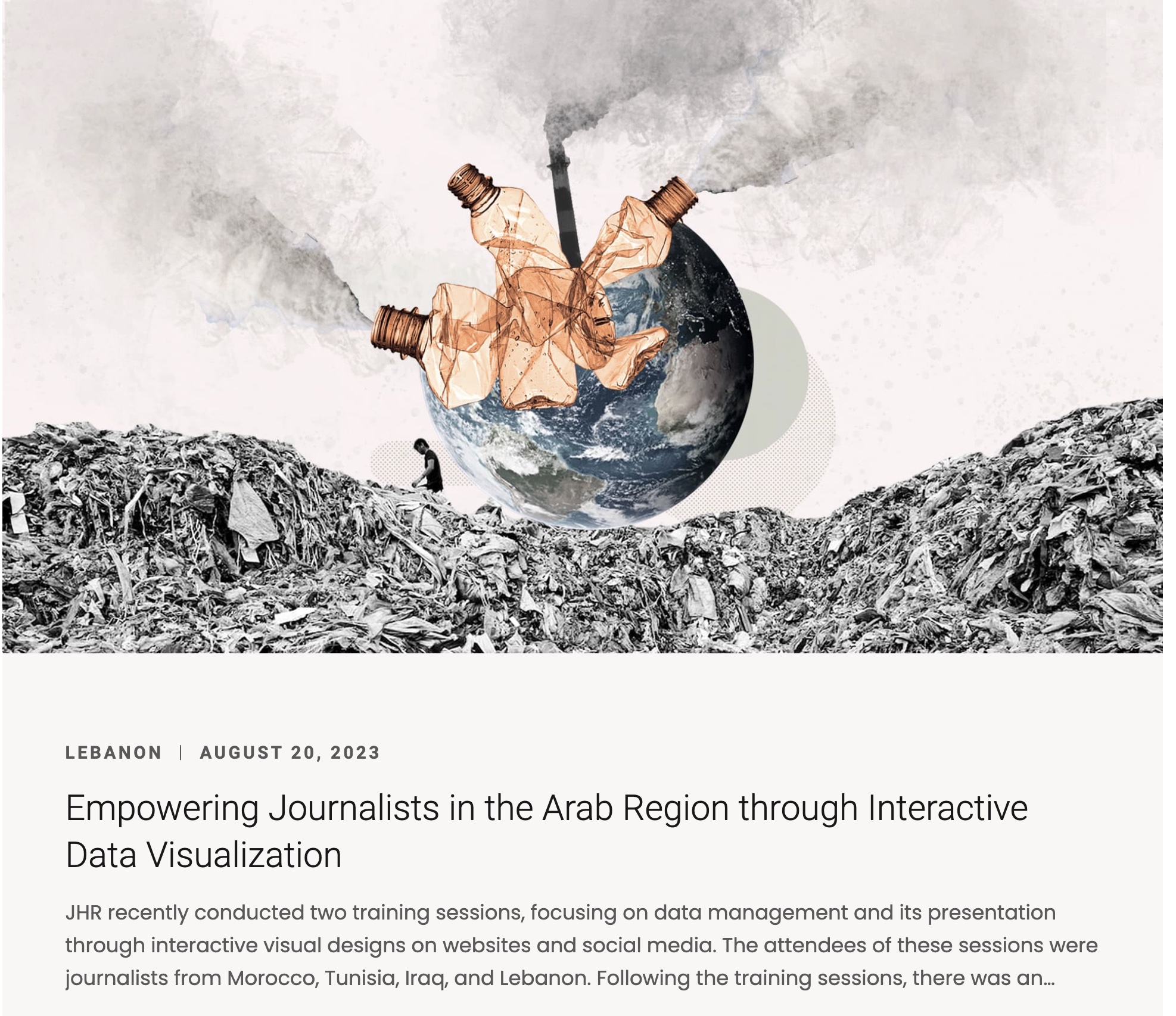Lesson Learned: Strengthening Independent Media in the Arab Region
Material outputs are most useful when they hold long-term temporal value and become staple references, such as the Human Rights Code of Ethics for North Africa and the Middle East (JHR code of ethics for human rights journalists on a regional level). In this case, the Implementing Partner relies on synergies with its other projects and thus far has increased signatories committed to the code by 100% beyond target.

The project aims to strengthen independent media in the Arab region so as to build greater accountability and better governance, by improving the working environment for journalists; advancing media freedom and accessible information and data; enhancing the capacity of freelance and full-time journalists to cover sensitive human rights stories; and improving journalists’ legal knowledge through strong working partnerships with civic actors. Project activities also incorporate responses to the Covid-19 crisis for journalists on the front line.


